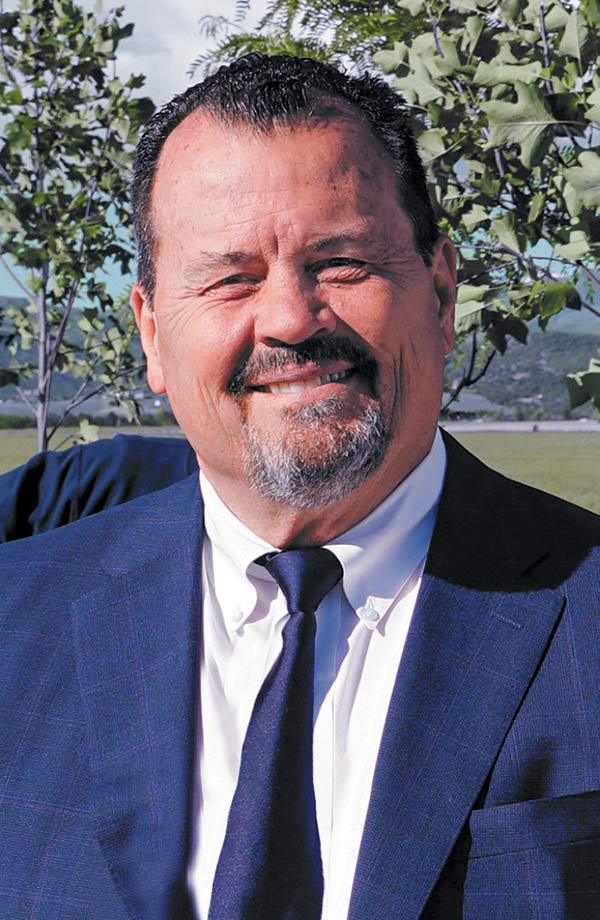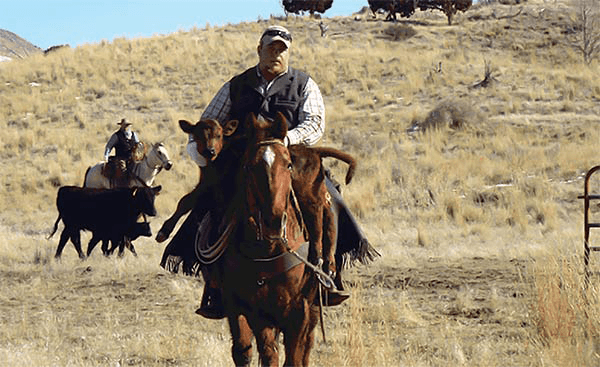Outcomes & Impact Quarterly
Summer Issue 2021
Introduction

Utah State University Extension has been providing research-based resources and education since 1914. As such, we have a long history of working to improve the lives of Utahns. Mental Health Month has been observed during the month of May in the United States since 1949. Though mental health/wellbeing is not always recognized as traditional Extension programming, it has been growing over the past 10+ years and is now a core Extension program area. We are proud of the efforts happening around the state to serve our communities and meet this important need. Please read on to see the tremendous impacts USU Extension is having in Utah. Additionally, we invite you to view the results of our statewide survey identifying critical issues for Utah's communities as per county commissioners and council members.
Sincerely,
Ken White
Dean, College of Agriculture and Applied Sciences; Vice President, Extension and Agriculture

Farmers Feeding Utah
Heidi LeBlanc and Casey Coombs
Utah has seen a 300% increase in the need for food assistance since the onset of COVID-19, yet supply chain disruptions left many Utah farmers and ranchers without a market for their products.
The Farmers Feeding Utah (FFU) Campaign was created to connect food-insecure residents to farmers and ranchers for locally produced food. Through individual and corporate monetary and in-kind donations, FFU is able to purchase food directly from farmers to distribute to those in need.

Utah families served through food distribution.

worth of locally grown Utah food provided to each family.

worth of food donated to families and pantries.

counties served in Utah and the Navajo Nation.

pantries and dozens of Utah farmers and ranchers supported.

miracle distribution projects completed.

smaller projects completed.


Stress and Mental Health in Rural Agriculture
Tasha Howard, Paige Wray, Josh Dallin, Jacob Hadfield, and Callie Ward

The Home and Community and Agriculture departments developed a research-based outreach course to address stress and mental health in agriculture. “The Biggest Asset is You” course provides a step-by-step process for identifying and responding to mental health warning signs and creates a network of informed community members who can assist. The one-hour course helps farmers and ranchers recognize the need to take care of their own mental health as well as that of others around them.

Results of the course so far:



Youth Substance Misuse Prevention Program
Stacey MacArthur, Tim Keady, Paige Wray, Christine Jensen, Mary Sorenson, Claire Warnick, and Lendel Narine

Substance misuse is a major documented problem for youth in rural counties in Utah.
In 2019, USU Extension implemented the PROSPER (PROmoting School-community-university Partnerships to Enhance Resilience) framework to provide a nationally recognized substance misuse prevention program in three rural Utah counties, selected because of high substance misuse rates. The program targeted 7th grade youth, and activities included prevention through PROSPER and positive youth development guided by the 4-H Thriving model. The program included family- and school-based education activities to promote youth resilience and development.
Positive outcomes were consistent across youth demographics, indicating all youth benefited from the program, regardless of their personal background. This program serves as an effective model for non-formal interventions targeting drug prevention among youth.

Hybrid Training Model for Mental Health and Substance Use Disorder Peer Support Certification
Maren Wright Voss, Amy Campbell, and Amelia Van Komen

Research and existing interventions demonstrate the effectiveness of peers in formal substance use disorder (SUD) treatments, showing positive impacts on recovery. Peer support has been even more critical during COVID-19. Until 2020, Certified Peer Support Specialist (CPSS) training programs were offered in-person only, which created barriers to having enough professionals for those needing mental health and SUD treatment during COVID-19.
USU Extension created a hybrid educational program to address the barriers to participation in the CPSS trainings before and during COVID-19. Extension county faculty acquired grant funding and worked with state specialists, community representatives, and CPSS trainers to adapt the curriculum and develop evaluation measures.
The pilot program resulted in increased accessibility of the CPSS training during COVID-19. Evaluation showed knowledge gain in critical topic areas and a significant increase in participants’ knowledge about CPSS certification and the job opportunities for a CPSS in Utah.

The Rural Online Initiative: Short-term Outcomes of Master Remote Work Leader Course
Amanda Ali and Paul Hill

Many people migrate out of rural communities in Utah in search of job opportunities. Meanwhile, businesses in urban areas struggle to find workers.
With advances in technology and internet speeds, remote work has become increasingly popular as an alternative workplace arrangement. With legislative funding under the Rural Online Initiative, USU Extension developed the Master Remote Work Leader (MRWL) certificate course. It provides specialized training for organizational leaders on core skills for effectively creating remote work environments and leading hybrid-remote and fully distributed employees.
An evaluation of short-term outcomes captured changes in participants’ knowledge, attitudes, skills, and aspirations toward creating remote work environments.

participants completed the MRWL course since it began in February 2020.
Results of the course so far:


Critical Issues Facing Utah Residents
Andree’ Walker Bravo, Principal Investigator
In January of 2021, an online questionnaire was emailed to all county commissioners and council members throughout Utah. A total of 72 responses were received from 28 counties. Commissioners and council members were asked questions pertaining to their perceptions of critical issues and needs in their counties. A follow-up phone survey was also facilitated with a few participants. All responses were anonymous, and data were compiled into state-wide results and split into rural and urban counties.
Critical Issues for Extension as Identified by Elected Officials










Overall Perception of USU Extension





- For full details on these programs and others, please visit digitalcommons.usu.edu/oiq.
- To find contact information for your local Extension office, visit extension.usu.edu/locations.


 Utah 4-H & Youth
Utah 4-H & Youth